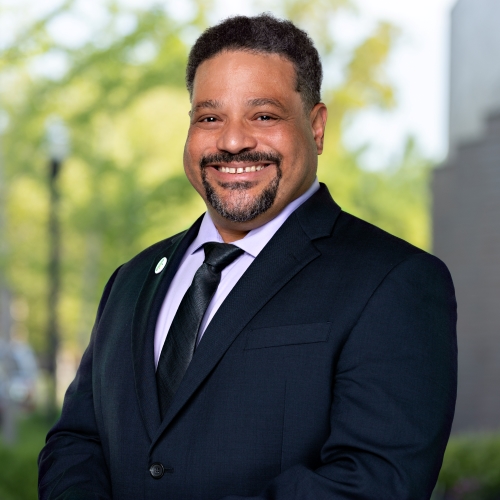Our association is a robust and diverse set of educators, students, researchers, medical professionals, volunteers and academics that come from all walks of life and from around the globe. Each month we choose a member to highlight their academic and professional career and see how they are making the best of their membership in IAMSE. This month’s Featured Member is Ian Murray.
Ian V.J. Murray
IAMSE 2023 Virtual Forum Program Chair
Professor of Physiology
Alice Walton School of Medicine (AWSOM), USA
How long have you been a member of IAMSE?
I was first introduced to IAMSE in 2012 when a colleague suggested we submit our research at the conference. I enjoyed the conference so much that I returned in 2015, where I presented a poster on student attention span during lectures. It was at this conference that I was introduced to educational theories, and with special note of the cognitive load lecture by Dr. Jimmie Leppink. I have attended all of the IAMSE conferences since!
You are currently Chair of the 2023 Virtual Forum Planning Committee. Tell me a little bit about what that process has been like. What are you most looking forward to during the event?
It has been a very rewarding experience working with IAMSE, and it facilitated interaction with colleagues, leadership, and administration. It is a pleasure to work with the team to make this conference a reality.
The theme of the Virtual Forum is “Should It Stay or Should It Go? Changing Health Education for Changing Times“. The process of ideation for the theme and subthemes was a collective effort using convergent and divergent thinking. Seeing how the different ideas converged to a common one was satisfying. With evolving and changing health education, with the end of the pandemic and the advancement of artificial intelligence (AI), we aimed to obtain international insight on innovations from students and international members. We also aimed to discuss and share about what does and does not work, and how medical educators have overcome and innovated as a result of these challenges. Additionally, since students are the future of this organization, the student registration fee was intentionally priced at $25.
I am most excited to be a part of this amazing forum and learn from learners and educators of all walks. We have three amazing Ignite Talks of 60 mins in length, which are unique and allow for direct interaction of participants, AND with the speaker. We also accepted 60 amazing Lightning Talks, with each talk being 14 minutes. Again, we planned these talks to allow for significant participant interaction with the speaker. Please take time to review the schedule, as we have content on AI, curriculum, teaching, and related to students.
Looking at your time with the Association, what have you most enjoyed doing? What are you looking forward to?
I have served on several IAMSE committees, with my first one being the Engage Committee, now renamed the Education and Advocacy Committee (EAC). I always enjoy my interactions and discussions with members in and out of the conference, as well as the new collaborations that have formed. These interactions have led to my connecting with mentors and interacting with members of communities of growth (COG). This has led to exciting and amazing friendships, opportunities, collaborations, and publications.
I have always been excited to present my medical education research at these conferences. My pivot from wet lab research to medical education research occurred when I moved to the Caribbean and became director of student research. I feel that it is crucial to engage students in research and pair them with suitable mentors. This enables the students to not only experience the research process, but also increase their competitiveness for residency applications. IAMSE is an excellent place for students to make connections and present their research.
Looking back at your time during your graduate studies and early career, if you could give your younger self a piece of advice what would it be?
Reflecting on my career, my best advice pertains to all levels for students and educators. The advice is to identify an effective mentor early on, one who is preferably external to their own institution. Perspective is influenced by one’s lens. The advantage of a mentor is that they bring their wisdom and personal relationship with the mentee into play to reframe perspectives. I experienced the power of mentoring during an AAMC grant workshop. Here, the expert mentor gave an example of how the grant feedback was perceived as failure by the applicant, but then was reframed as steps for success. I was pleased to see IAMSE develop a mentoring program and a publication on this important topic.
Looking back at your time during your graduate studies and early career, if you could give your younger self a piece of advice what would it be?
I look forward to meeting you at IAMSE in the future, and please feel free to reach out to me to say “Hello“!

